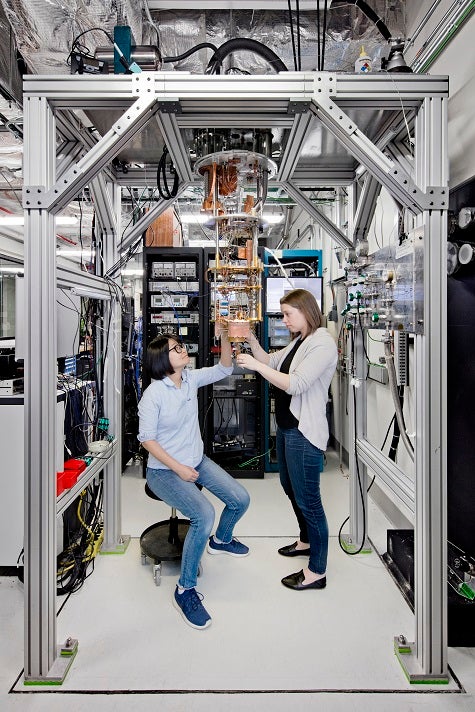Although quantum computing may seem like the stuff of science fiction, it turns out that the cloud is about to play a major role in making quantum computing a much bigger reality. IBM today announced a means of making quantum computing more accessible via the launch of an IBM Q service delivered via the cloud.
Scott Crowder, CTO and vice president of quantum computing at IBM, says a wide range of computing challenges, such as creating models of complex chemical compounds, are simply too large for traditional IT systems to effectively address. By exposing an application programming interface for an IBM Quantum Experience service, IBM is making it possible for developers to invoke five existing quantum bits (Qubits). Before the end of the second quarter, IBM plans to release a full software development kit to make building applications on top of IBM Quantum Experience easier. At present, the IBM Quantum Experience provides access to up to 20 qubits.
IBM also revealed this week it aims to construct commercial IBM Q systems with employing more than 50 qubits in the next few years. During that same period, Crowder says IBM will also be working to shore up integration between existing commercial and quantum systems to make it possible to invoke quantum computing within the context of a traditional application.
Since its launch in 2016, IBM says 40,000 users around the globe have run over 275,000 experiments on the IBM Quantum Experience. To facilitate collaboration among those users, Crowder says scientists have been making use of notebook applications written in either Python or using the Jupyter Notebook application.
In general, Crowder says, the challenge with qubits is not so much building them as it is making them stable enough to employ within an application. But once a qubit becomes stable, it opens the possibility to create an application that scales to unprecedented heights because computing itself is no longer tied to a sequential process.
“Because processing is not sequential, you can have exponential scale,” says Crowder.
IBM expects quantum computing to play a major role in advancing a broad range of applications, including artificial intelligence applications that need to employ machine learning algorithms against massive amounts of data. The challenge going forward is to not only prioritize what applications to build, but also to identify problems to solve that previously would never have been imagined or attempted simply because there was no means to compute them.



